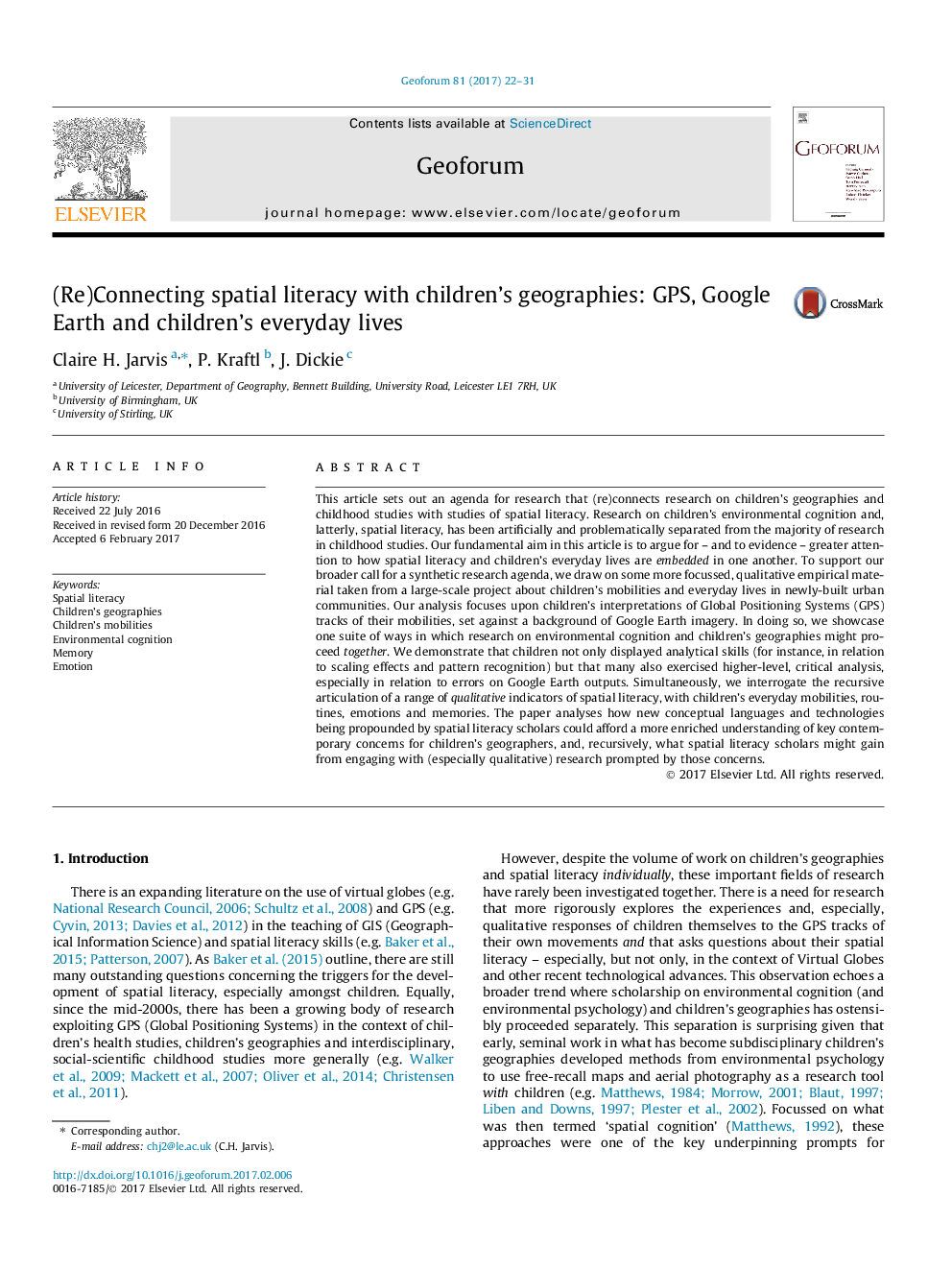| Article ID | Journal | Published Year | Pages | File Type |
|---|---|---|---|---|
| 5073211 | Geoforum | 2017 | 10 Pages |
Abstract
This article sets out an agenda for research that (re)connects research on children's geographies and childhood studies with studies of spatial literacy. Research on children's environmental cognition and, latterly, spatial literacy, has been artificially and problematically separated from the majority of research in childhood studies. Our fundamental aim in this article is to argue for - and to evidence - greater attention to how spatial literacy and children's everyday lives are embedded in one another. To support our broader call for a synthetic research agenda, we draw on some more focussed, qualitative empirical material taken from a large-scale project about children's mobilities and everyday lives in newly-built urban communities. Our analysis focuses upon children's interpretations of Global Positioning Systems (GPS) tracks of their mobilities, set against a background of Google Earth imagery. In doing so, we showcase one suite of ways in which research on environmental cognition and children's geographies might proceed together. We demonstrate that children not only displayed analytical skills (for instance, in relation to scaling effects and pattern recognition) but that many also exercised higher-level, critical analysis, especially in relation to errors on Google Earth outputs. Simultaneously, we interrogate the recursive articulation of a range of qualitative indicators of spatial literacy, with children's everyday mobilities, routines, emotions and memories. The paper analyses how new conceptual languages and technologies being propounded by spatial literacy scholars could afford a more enriched understanding of key contemporary concerns for children's geographers, and, recursively, what spatial literacy scholars might gain from engaging with (especially qualitative) research prompted by those concerns.
Related Topics
Social Sciences and Humanities
Economics, Econometrics and Finance
Economics and Econometrics
Authors
Claire H. Jarvis, P. Kraftl, J. Dickie,
